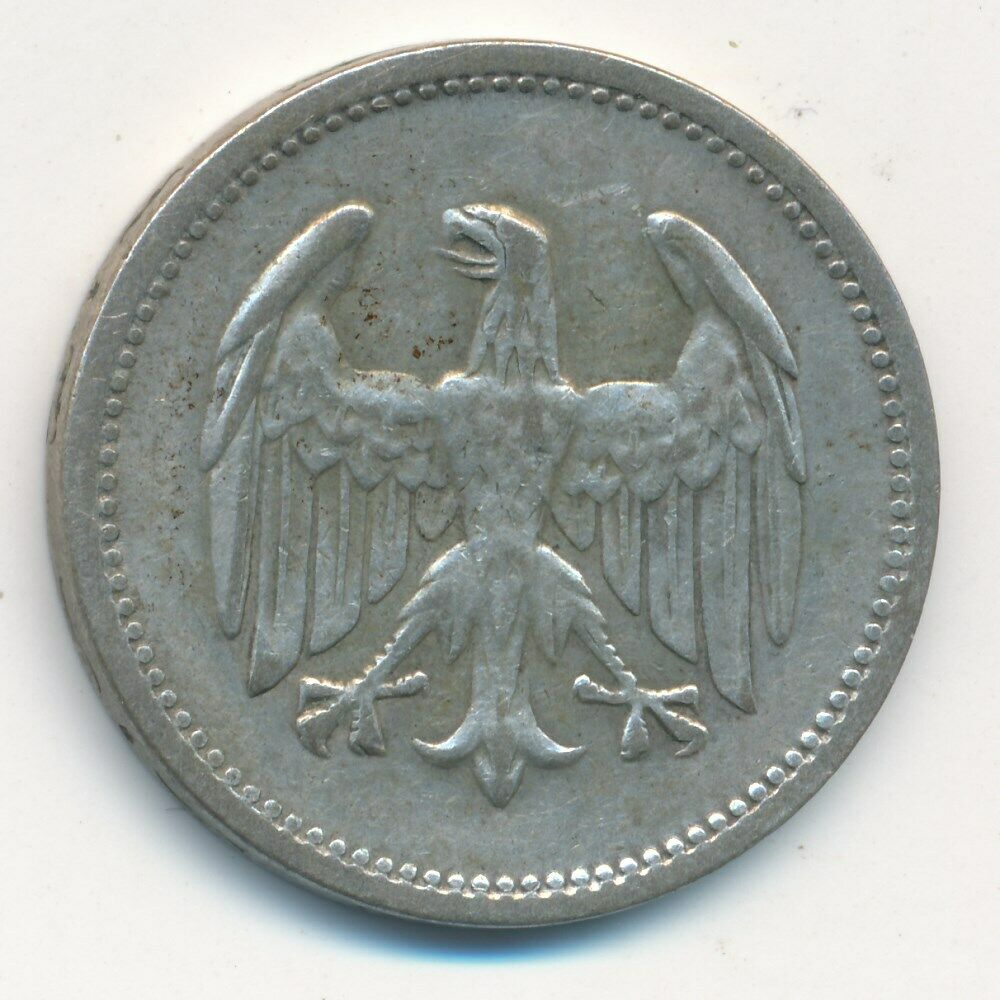-40%
Weimar Republic, 1931-G 2 Reichsmark PCGS Proof 64 Cameo, Splendid Toning !
$ 231.79
- Description
- Size Guide
Description
Weimar Republic, Proof 2 Mark 1931-G,Karlsruhe mint, KM45, J-320.
Graded PCGS Proof 64 Cameo. PCGS Population [1/0], total of 1. NGC
Census [1/0], total of 2. Finest known for this conditional rarity.
Remarkable rarity in pristine condition with aqua toning fading to mustard around the edges.
Combined shipping available. Please view our high resolution photos.
The Weimar Republic (German: Weimarer Republik [ˈvaɪmaʁɐ ʁepuˈbliːk] ), officially the German Reich (Deutsches Reich), also referred to as the German Republic (Deutsche Republik), was the German federal state from 1918 to 1933. As a term, it is an unofficial historical designation that derives its name from the city of Weimar, where its constituent assembly first took place. The official name of the republic remained the German Reich as it had been during the German Empire because of the German tradition of substates.
The Reich was changed from a constitutional monarchy into a republic. In English, the country was usually known simply as Germany, and the Weimar Republic name became mainstream only in the 1930s.
Germany became a de facto republic on 9 November 1918 when Kaiser Wilhelm II abdicated the German and Prussian thrones with no agreement made on a succession by his son Crown Prince Wilhelm; and became a de jure republic in February 1919 when the position of President of Germany was created. A national assembly was convened in Weimar, where a new constitution for Germany was written and adopted on 11 August 1919. In its fourteen years, the Weimar Republic faced numerous problems, including hyperinflation, political extremism (with contending paramilitaries) as well as contentious relationships with the victors of the First World War. Resentment in Germany towards the Treaty of Versailles was strong, especially on the political right where there was great anger towards those who had signed and submitted to the treaty. The Weimar Republic fulfilled most of the requirements of the Treaty of Versailles although it never completely met its disarmament requirements and eventually paid only a small portion of the war reparations (by twice restructuring its debt through the Dawes Plan and the Young Plan). Under the Locarno Treaties, Germany agreed to the western borders of the country by accepting the irredentist claims of France and Belgium, but continued to dispute its eastern borders and sought to persuade Austria to rejoin Germany, which it had been part of during the German Confederation of 1815 to 1866.
From 1930 onwards, President Paul von Hindenburg used emergency powers to back Chancellors Heinrich Brüning, Franz von Papen and General Kurt von Schleicher. The Great Depression, exacerbated by Brüning's policy of deflation, led to a surge in unemployment. In 1933, Hindenburg appointed Adolf Hitler as Chancellor with the Nazi Party being part of a coalition government. The Nazis held two out of the remaining ten cabinet seats. Von Papen as Vice Chancellor was intended to be the "éminence grise" who would keep Hitler under control, using his close personal connection to Hindenburg. Within months, the Reichstag Fire Decree and the Enabling Act of 1933 had brought about a state of emergency, as the Nazi Party wiped out constitutional governance and civil liberties. Hitler's seizure of power (Machtergreifung) was permissive of government by decree without legislative participation. These events brought the republic to an end—as democracy collapsed, the founding of a single-party state began the dictatorship of the Nazi era.















